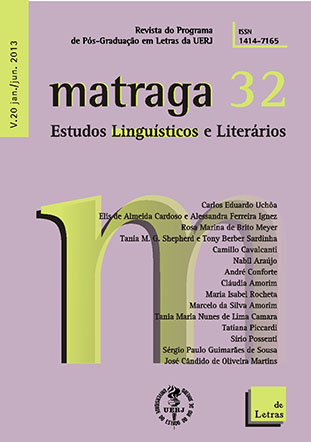STYLISTICS AND CONTEMPORARY LITERARY DISCOURSE
Keywords:
Stylistics, literary discourse, style, PostmodernismAbstract
For a long time, Stylistics was considered a discipline akin to Rhetoric, being responsible for the study of figures of speech existing in literary texts. This reduced idea was extended, because, today, style is considered forms of expression in different enunciative contexts. Thus, its importance for discourse studies, because each gender has specific linguistic usages that generate different meaning effects. In the case of literary discourse, researchers are faced with the question of form, of expressiveness and of individuation of speech, so they try to investigate the expressive effects obtained through stylistic uses. If the study of the style of a particular period in literature became important because there were groups of writers with very similar stylistic features that revealed their artistic ideals, currently, there is a great stylistic diversity, which makes it difficult to work with the style of a period and “opens the door” to a more plural analysis, which tries to identify the stylistic uses of each author, of the various groups that appear simultaneously in postmodernity with distinct objectives. Thus, this article aims to investigate, drawing on Stylistics, how it is possible to study the meaning effects obtained in contemporary literary discourse.
Downloads
Downloads
Published
How to Cite
Issue
Section
License
Authorization
Matraga – Scientific Journal of the Post-graduate Program in Arts and Humanities of UERJ is authorized to publish the article submitted here, if it is accepted for online publication. It is attested that the contribution is original, that it is not being submitted to another publisher for publication, and that this statement is the expression of truth.
The works published in Matraga's virtual space – Scientific Journal of the Post-graduate Program in Arts and Humanities of UERJ will be automatically transferred, and your copyright is reserved to Matraga. Its reproduction, in whole or in part, is conditional on the citation of the authors and the data of the publication.

Matraga uses license Creative Commons - Attribution-Non-Commercial 4.0 International.





